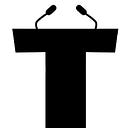The Justice Department’s lawsuit to block the merger of Penguin Random House and Simon & Schuster is by any measure a significant matter for book publishing, even though the deal itself is a fraction of the size of, say, Time Warner and AT&T, which went through.
Publishing books is a very old business in a world now dominated by very new businesses — what we recognize is that the “tech” universe, good, bad, and indifferent, is still very much taking shape. The writing, editing, printing, and selling of books has evolved over time, but essentially is what it has been for centuries.
The seventy-five-page Justice Department lawsuit is detailed, obviously argumentative, and in some respects offensively ignorant about books. The premise appears to be that the value of a book resides in the size of the advance paid to the author, and not in the substance of the work itself. The concept of the auction, with the book usually going to the highest bidder, is accepted practice. My personal view is that this often doesn’t match the author with the best editor and publisher.
Ask authors and you’ll find out how many are frustrated by the way their books were handled, no matter the size of the advance.
As for the reality of advances, the vaunted “six-figure” payday is less robust than it may first appear. Not only are advances doled out in multiple installments over an extended period, but an author generally will pay 15 percent of the advance to the agent and about 25 to 30 percent to taxes, leaving barely more than a minimum-wage rate of pay for one or two years of work. Meanwhile, the publisher has to put the whole figure on a balance sheet, and write-offs are common. Advances are clearly necessary. They are not, however, the prediction of a book’s quality.
How authors should be supported is a vital subject, but that is not the issue in the lawsuit. Books cover a vast spectrum from children to the elderly, from murder mysteries to erotica and every nonfiction topic imaginable, and in almost every known language. In recent years, audiobooks have exploded as a powerful and lucrative medium for connecting authors and readers. That business is dominated by Audible, which is in turn owned by Amazon, arguably the most powerful single entity in the history of books, but not the target of this effort by the Justice Department.
*********************
The outcome of this case will not depend on what the publishing community in the broadest sense favors. It will come down to the arguments of lawyers and the opinion of judges — a tug-of-war that may well go on for a long time and with an unknown outcome, unless Penguin Random House gives up and pays ViacomCBS (the current owner of Simon & Schuster) what apparently is a large penalty for the failed acquisition.
As for what ought to happen, I can argue either side. An even more powerful PRH-S&S would have the vast capacity to back hundreds of imprints, each with its own identity and a commitment by management to diversity in content and staff. On the other hand, consolidation would mean that smaller independent publishers, numbering in the thousands, would find it harder to compete for attention and for authors. Terms of sale to booksellers would be set by a company so large that it could demand them rather than negotiate.
So what, then, is in the immediate future for Penguin Random House and Simon & Schuster?
Penguin Random House will be fine. It is, by all accounts, flourishing. The question is what happens to Simon & Schuster. At the outset, I should affirm that Jonathan Karp, the CEO of S&S, Dennis Eulau, his deputy, and the editors I know there are superb professionals. The results at S&S in recent years have been terrific. Its third-quarter results, released this week, show a year-on-year increase of 15 percent in sales revenue and a 66 percent increase in profits. ViacomCBS is selling the business in part to pay down its accrued debt. It also sold the famed Black Rock CBS headquarters building in midtown Manhattan.
************************
Here are some scenarios:
Another major publisher steps in. Very unlikely. HarperCollins was the underbidder to PRH in the competition for S&S and has since acquired Houghton Mifflin Harcourt. And lest we forget, Harper is a fine publisher in a company controlled by Rupert Murdoch, who has brought us Fox News and right-wing editorial pages around the world.
Hachette Book Group, where the company I founded, PublicAffairs, now resides, is French-owned and its future is uncertain because of takeover moves by Vivendi, another French company.
Macmillan, like PRH, is German-owned. It is also the smallest of the “Big Five” publishers and would have a hard time absorbing S&S, which is a significantly larger company. A merger with S&S would, like the PRH-S&S combination, put a great deal of American publishing in German hands, a prospect that for now seems politically and economically secure — yet it may not always be. Foreign ownership in the dissemination of ideas has often proved to be complicated.
Private equity. Barnes & Noble is now owned by Elliott Management Corporation and is led by James Daunt, a British bookseller of great skill who seems to be reviving the chain. Private equity is also in the process of largely destroying the newspaper and magazine businesses, where the real estate is often more valuable than the mission of information. Private equity is about making money and not the future of literature.
A billionaire steps up. Jeff Bezos has resurrected The Washington Post. Marc Benioff of Salesforce has bought Time magazine. Bezos, who already publishes a great many books through Amazon, is a nemesis for those in the publishing industry who already have to reckon with Amazon’s reach and toughness on vendors.
Some other “benefactor.” ViacomCBS will surely drive the hardest of bargains for S&S if it goes back on the market. How beneficent would any buyer with virtuous motives be when the price and investment is extremely large?
Employee buyout in partnership with private equity or a mogul. W.W. Norton, a great publishing company, is employee-owned, so there is precedent for this outcome. How such a transaction would be organized and financed strikes me as headspinningly complex, which doesn’t mean it shouldn’t happen.
Merger with a major company in a related business. Ingram Content Group is the nation’s largest wholesaler and distributor, and by all accounts it is a stable and well- managed enterprise with John Ingram at its helm. Would Ingram or any other comparable company feel the urge or the need to absorb S&S?
There may well be other scenarios. Let’s be on the lookout. In any case, S&S is in play and will be for a while. Agents and authors may be reluctant to trust their future work to this hard-to-fathom future. The uncertainty diminishes the publishing landscape that the Justice Department ostensibly wants to protect.
When I arrived at Random House as an editor in 1984, the twin peaks of high-end commercial publishing were RH and S&S, both already decades since their founding by legends like Bennett Cerf, Alfred A. Knopf, and Richard Simon. Both companies have changed hands since — that is the nature of capitalism, and book publishing is definitely a business. But it is much more than a dollars-and-cents business when it comes to ideas, insight, history, and literature. The goal cannot just be who gets the most dough and the highest return on investment, whatever it is.

